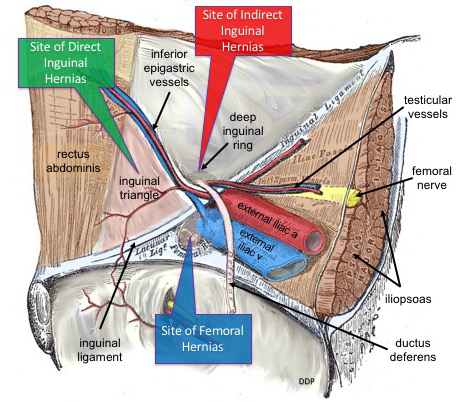
A hernia is a defect in the muscle that is a result of a weakness in the abdominal wall. These conditions commonly occur in the groin or upper thigh, but they can also occur in the lower abdominal wall. These conditions are caused by excessive physical exertion or muscle weakness. Hernias can be painful and uncomfortable, and surgery is usually required to correct them. Listed below are the common types of hernias and the options for treatment.
A hernia can be caused by a weakness in the femoral or inguinal canal, which allows blood to flow to the scrotum and legs. There are two major types of hernia, incisional and non-incisional, and there are many different ways to treat them. Fortunately, there is no one-size-fits-all treatment for hernia.
There are two main types of hernias: incisional and non-incisional. An incisional hernia occurs when the tissue that forms the hernia has bulged out of the abdominal cavity. An external hernia occurs in the abdominal wall, a muscle partition between the chest and abdomen. Surgical repair can be performed in a surgical procedure, and surgery may be necessary for a hernia to be repaired.
Incisional hernias can be repaired surgically. While the doctor will determine the size of the hernia, additional knowledge about surgical repair techniques can help patients make informed decisions. A hernia diagnosis and treatment can be difficult to diagnose. However, an accurate diagnosis is the best way to ensure a proper recovery. A thorough evaluation of a hernia is essential to make the best choice.
A hernia is a hole in the abdominal cavity wall that allows a portion of an organ or other body contents to protrude through it. It can occur in a variety of locations, including the groin, femoral, and umbilical areas. In a hernia, fatty tissue or the loops of the large intestine may be protruding from the abdominal cavity into the chest.
A hernia can affect the bowels, ovaries, and other internal organs. The abdominal wall is a tough sheet of muscle that stretches from the ribs to the groins. It is responsible for holding in the intestines, but a weakness in the abdominal wall can cause a bulge. A hernia is a bulge. A herniation in the abdominal wall is called a hernia, and it is characterized by a loss of support.
A hernia can be treated in several ways, including surgery or hernia repair. In severe cases, the hernia can be repaired surgically or with a simple procedure such as mesh placement under arthroscopic guidance. In addition to surgery, hernias can be treated with other methods. These include medications and lifestyle changes.
Once a hernia is diagnosed, it is important to correct it. Although it may go away on its own, it can get worse if ignored. As a result, hernia surgery may be a life-saving option. Even if the hernia is mild, symptoms may affect your daily activities and sex life. If the hernia is too large, surgery may be required.
A hernia occurs due to a weak spot in the abdominal wall. The abdominal wall is a layer of tough muscle that runs from the ribs to the groin. It acts like a corset and is held in place by the intestines. A hernia occurs when the abdominal wall weakens. A hernia is a protrusion of the abdominal wall. Hernia is a common disease.
A hernia is a hole in the abdominal wall caused by a weak spot in the muscle. Organs can get stuck in the hole and be pushed out. In most cases, the hernia will remain permanent unless the affected organ is removed. During surgery, a hernia is a common complication. In this case, the surgeon will use an open method of hernia treatment.
A hernia can occur anywhere in the abdominal wall. A hernia may involve a protrusion of the intestine into the abdominal cavity. This can be painful and cause a bulge. If you suspect you have a hernia, it is important to seek medical help and get advice online https://phuketbulletin.co.th/. The doctor will determine whether the hernia is hereditary and whether it is present in your body.